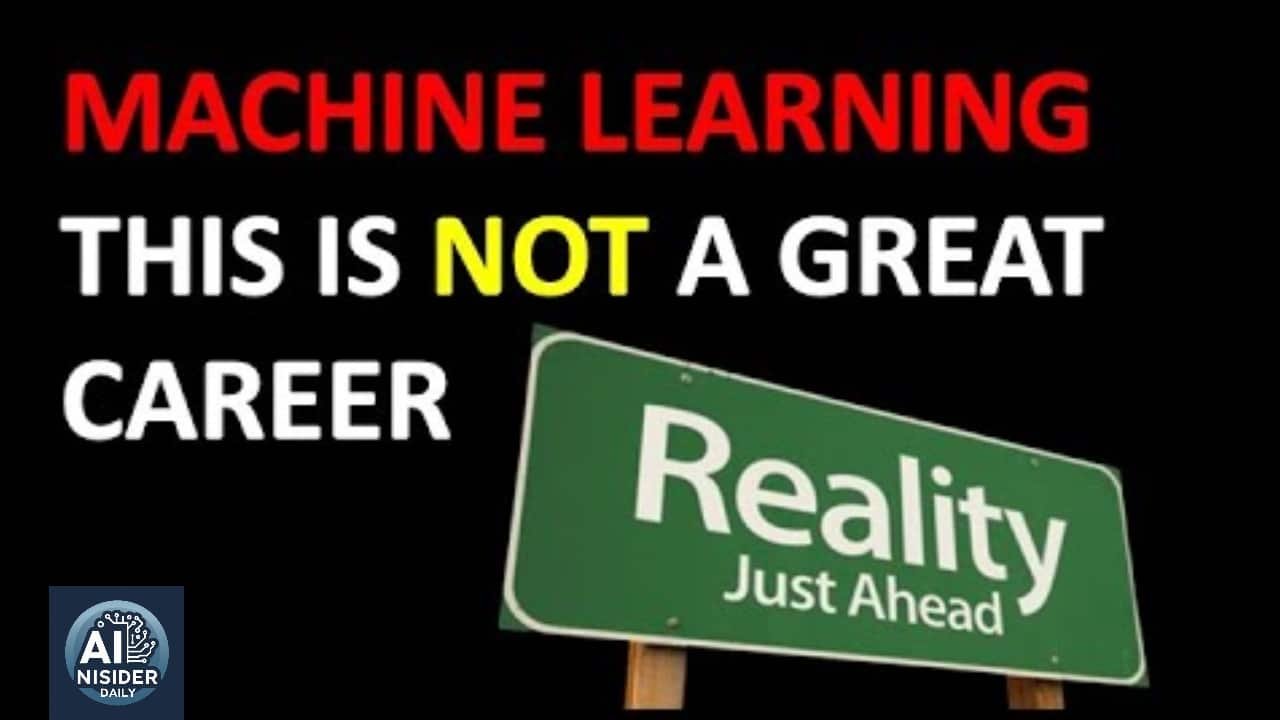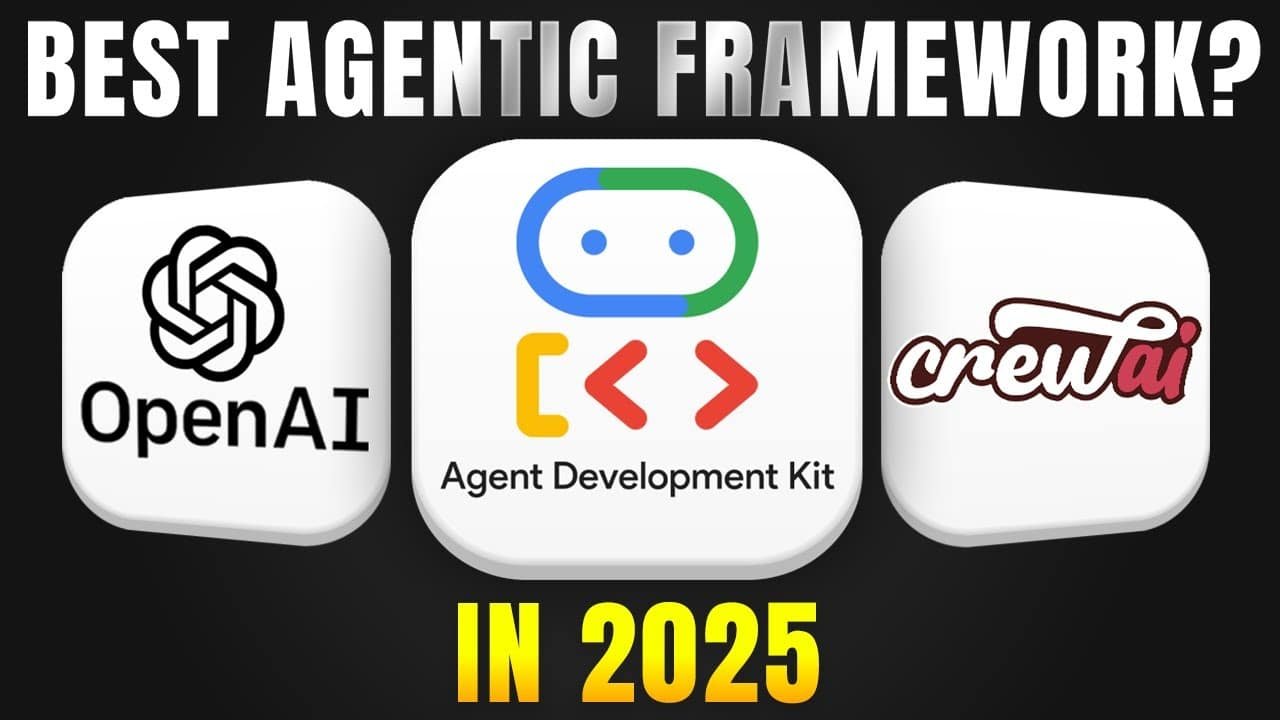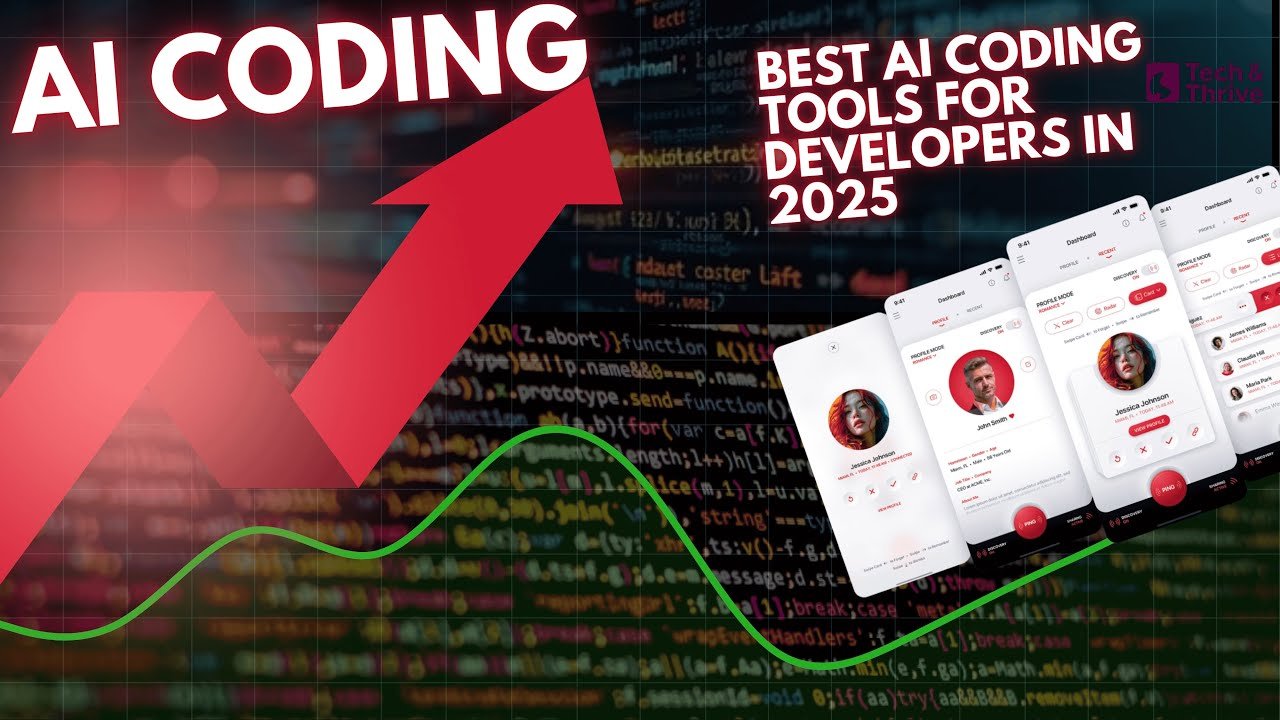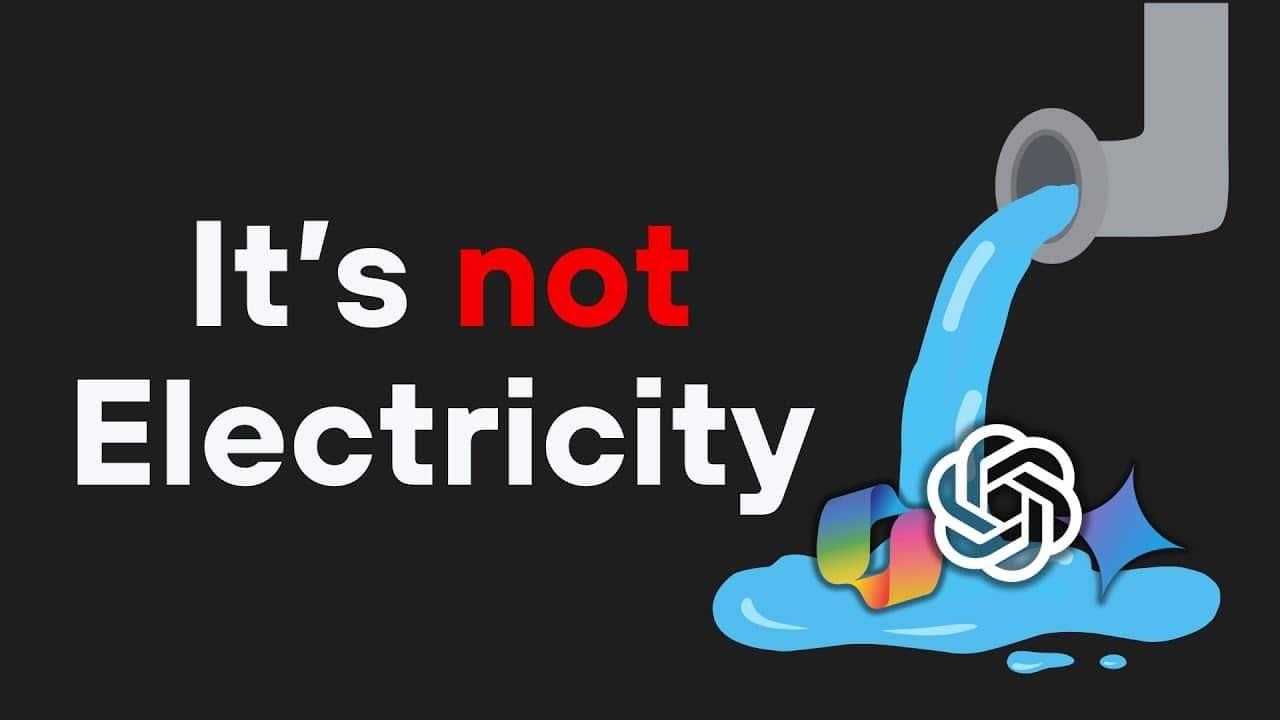As 2025 unfolds, the buzz around careers in Machine Learning, Artificial Intelligence, and Data Science continues to intensify. With tech giants and startups alike investing billions in AI infrastructure, the question facing many prospective students and career-switchers is increasingly urgent: Is spending $40,000-$120,000 and 1-2 years on a specialized Master’s degree still the optimal path into this field?
This question has become especially complex in a world where:
- Free or low-cost educational resources like fast.ai, DeepLearning.ai, and MIT OpenCourseWare keep expanding
- AI tools themselves (ChatGPT, Copilot, Claude) are becoming both learning resources and skill multipliers
- Hiring managers are increasingly split between valuing credentials versus demonstrated skills
- Geographical differences mean a degree might be essential in some markets but optional in others
In this deeply-researched article, we’ll explore the actual return on investment of Master’s degrees in ML/AI/Data Science in 2025, examine case studies of different educational paths, and give you concrete decision criteria based on your personal circumstances.
What Does a Master’s in AI/ML/Data Science Actually Cover?

Before evaluating whether a Master’s degree is worth the investment, let’s examine what you’re actually paying for in terms of curriculum and learning experience.
A typical Master’s program in these fields generally covers:
- Core mathematical foundations: Advanced linear algebra, calculus, probability, and statistics
- Machine learning fundamentals: Supervised and unsupervised learning, neural networks
- Deep learning specializations: Computer vision, natural language processing, reinforcement learning
- Data engineering: Database systems, big data processing frameworks, data pipelines
- Practical implementation: Capstone projects, research opportunities, and sometimes internships
- Emerging topics: Generative AI, large language models, ethical considerations
Curriculum Comparison Across Top Universities
| University | Program | Key Focus Areas | Unique Offerings |
| Stanford University | MS in Computer Science (AI Track) | Theoretical foundations, robotics, NLP | Strong industry connections, research opportunities with leading AI labs |
| Carnegie Mellon University | MS in Machine Learning | Math-heavy, theoretical ML, statistical approaches | Highly specialized ML-focused curriculum with rigorous mathematical requirements |
| Oxford University | MSc in Advanced Computer Science (ML & AI) | Probabilistic modeling, computational linguistics | Close collaboration with Oxford’s Human-Centered AI Institute |
| Georgia Tech | MS in Computer Science (ML Specialization) | Applied ML, interactive intelligence | Affordable online option (~$7,000) with same curriculum as on-campus |
| ETH Zurich | MSc in Data Science | Statistical learning, data management, privacy | Strong emphasis on mathematical rigor and theoretical foundations |
What’s notable is that while the core ML/AI fundamentals remain consistent across programs, each university has its distinct emphasis. Stanford’s programs tend to integrate closely with Silicon Valley industry needs, while CMU’s offerings are more theoretically rigorous. European universities like ETH Zurich and Oxford often place greater emphasis on mathematical foundations.
The Real-World Cost (and Opportunity Cost)
When evaluating whether a Master’s degree is worth it, you need to consider both direct costs and opportunity costs—what economists call the “next best alternative” you’re giving up.
Direct Financial Costs
- Tuition fees: $40,000-$120,000 total, depending on the program and institution
- Living expenses: $10,000-$40,000 per year (varies dramatically by location)
- Materials and equipment: $2,000-$5,000 (high-performance laptops, books, software)
- Application fees: $500-$1,000 (across multiple programs)
Opportunity Costs
- Lost income: $60,000-$150,000+ (1-2 years of potential salary)
- Career progression delays: Lost promotions, raises, and experience
- Time commitment: 1-2 years of full-time study or 2-3 years part-time
Cost Comparison of Top Programs (2025 Figures)
| University/Program | Total Tuition | Duration | Est. Total Cost (incl. living) |
| Stanford MS in CS (AI Track) | $66,000 | 1-2 years | $120,000+ |
| Carnegie Mellon MS in ML | $84,000 ($28,000/semester) | 3 semesters | $130,000+ |
| Georgia Tech OMSCS (ML Spec.) | $7,000 | 2-3 years (part-time) | $10,000-$15,000 |
| Oxford MSc Advanced CS | £40,000 (~$51,000) | 1 year | $75,000+ |
| Fast.ai + Self-study | $0-$2,000 | 6-18 months | $2,000-$5,000 |
| Top AI/ML Bootcamp | $10,000-$20,000 | 3-6 months | $15,000-$30,000 |
The ROI Equation:
When considering a Master’s degree as an investment, you’re essentially betting that the differential in earning potential and career opportunities will exceed the combined direct costs and opportunity costs within a reasonable timeframe (usually 3-7 years).
Case Study #1: The Academic Route
Priya’s Journey: From India to CMU to Meta
Background: Priya completed her undergraduate degree in Computer Science at an engineering college in India. Despite having good programming skills and basic ML knowledge, she found it challenging to secure interviews with top tech companies abroad.
The Decision: She applied to several top ML programs in the US and was accepted to Carnegie Mellon’s MS in Machine Learning program.
The Investment:
- Tuition: $84,000
- Living expenses: $45,000
- Lost income: Minimal (entry-level salaries in India were significantly lower)
What Worked:
- Brand name opened doors for interviews at FAANG companies
- Research assistantship reduced second-year costs
- Summer internship at Meta converted to full-time offer
- Network of peers led to multiple job referrals
- Starting salary of $185,000 (base + stock + bonus)
What Didn’t:
- Student loans became a significant financial burden
- Intense academic pressure and competition caused periods of burnout
- Took 6 months to find the right team/role fit at Meta
ROI Assessment: For Priya, the degree was worth it primarily because it provided both the visa pathway to work in the US and the credential needed to get past resume screens. Her ROI timeline for recouping costs was approximately 2 years given the significant salary increase.
Case Study #2: The Self-Taught Path
James’s Journey: From Web Developer to ML Engineer
Background: James was a mid-level web developer with 4 years of experience at a medium-sized tech company in the US. He had a bachelor’s degree in Computer Science but wanted to transition to ML engineering.
The Decision: Instead of pursuing another degree, James decided to self-teach ML using online resources while continuing to work full-time.
The Investment:
- Course costs: $1,200 (FastAI, DeepLearning.ai specializations, books)
- Computing resources: $800 (Cloud GPU credits, equipment)
- Time: 15-20 hours per week for 10 months
- No lost income (continued working)
What Worked:
- Built practical skills through Kaggle competitions
- Created a GitHub portfolio of ML projects
- Leveraged existing coding skills to implement ML models
- Secured a remote ML Engineer position at a Series A startup
- Salary increase of 35% from previous role
What Didn’t:
- Several rejections from larger companies due to lack of credentials
- Struggled with theoretical interview questions
- Limited exposure to cutting-edge research
- Self-discipline challenges without structured learning environment
ROI Assessment: For James, the self-taught route was highly effective from a cost perspective. With minimal financial investment and no opportunity cost in terms of lost income, he achieved a significant salary increase. However, he did face barriers with some top-tier companies, suggesting potential career ceiling issues.
Case Study #3: Bootcamps or Nano Degrees
Elena’s Journey: From Marketing Analyst to Junior ML Role
Background: Elena had a Bachelor’s in Business and 3 years of experience as a Marketing Analyst doing basic data analysis. She wanted to pivot more deeply into ML but lacked the technical background for direct entry.
The Decision: Elena enrolled in Udacity’s AI Nanodegree while taking a 3-month leave of absence from work.
The Investment:
- Bootcamp cost: $15,000
- Lost income: $20,000 (3 months)
- Total time: 3 months intensive + 6 months additional self-study
What Worked:
- Structured curriculum filled knowledge gaps quickly
- Capstone project became portfolio centerpiece
- Career services helped with resume and interview prep
- Successfully transitioned to a Junior ML role at a retail company
- 20% increase in salary from previous position
What Didn’t:
- Had to start at junior level despite previous work experience
- Some employers viewed bootcamp credentials skeptically
- Found knowledge gaps appearing in certain mathematical areas
- Limited personalized mentorship compared to university programs
ROI Assessment: For Elena, the bootcamp provided a faster and more affordable entry point than a Master’s degree, especially considering her non-technical background. While her starting position was more junior than she might have achieved with a Master’s, the ROI timeline was still favorable at approximately 1-2 years to recoup costs.\
🚀 Once you’re confident in your AI engineering skills, learn how to land a job at MANG with real-world strategies, resume tips, and interview insights.
Industry Viewpoint: Do Employers Still Value AI/ML Degrees?
With the rapid evolution of AI and ML fields, employer perspectives on educational requirements have become increasingly nuanced. Recent LinkedIn data and hiring manager surveys reveal some interesting trends:
What the Data Shows
- According to LinkedIn data from 2024, 47% of hiring managers now consider AI abilities the most important hard skill for candidates, often outweighing formal education requirements.
- 74% of employers expect even new college graduates to already have AI user experience before entering the workforce.
- For specialist ML roles, the requirements bifurcate: research-oriented positions still strongly prefer advanced degrees, while implementation and engineering roles increasingly value demonstrated skills.
Quotes from Hiring Managers
“We’ve shifted to a more skills-based assessment approach. A degree from a top program still carries weight, but it’s no longer a non-negotiable requirement if someone can demonstrate exceptional project work and practical implementation skills.”
— Technical Recruiting Manager, Google
“For research scientist roles, we still strongly prefer PhDs or at minimum a Master’s from a strong program. But for ML engineering positions, we’re seeing excellent candidates emerge from non-traditional backgrounds who have deep, self-taught expertise in specific areas.”
— AI Research Director, Meta
“The distinction we make is between fundamental understanding versus implementation skills. Self-taught candidates often excel at implementation but may lack deeper theoretical knowledge, which matters for certain roles but not others.”
— Senior ML Engineer, Amazon
The GitHub Portfolio Effect
One consistent finding across our research is the increased weight given to GitHub portfolios and practical project demonstrations. Many companies now have explicit portfolio review stages in their hiring process, with some even prioritizing this over academic credentials for engineering-focused roles.
Geographic Reality Check: Does It Depend on Where You Live?
The value of a Master’s degree in ML or Data Science varies significantly by geographic region, influenced by local education systems, visa requirements, and industry expectations.
Regional Comparison of Master’s Degree Value
| Region | Degree Value | Key Considerations |
|---|---|---|
| United States | High but decreasing |
|
| India | Very high |
|
| European Union | High |
|
| UK | Moderate to high |
|
| China | Very high |
|
| Australia | Moderate |
|
The geographic disparities create interesting arbitrage opportunities. For example, someone in India might benefit enormously from a US Master’s degree for career mobility, while a US citizen might find better value in a European program with lower tuition or a high-quality online program.
The Visa Factor
For international students hoping to work in countries like the US or UK, a Master’s degree often remains the most reliable path to work authorization. This non-negotiable reality can override pure ROI calculations for many aspiring ML professionals.
Emerging Alternatives in 2025
The educational landscape for AI/ML continues to evolve rapidly, with several compelling alternatives emerging as competitors to traditional Master’s programs:
🔧 Want to make sure you’re fully prepared before applying? Don’t miss our AI Engineer Roadmap 2025 – a step-by-step guide to mastering the essential skills top companies look for.1. AI-Enhanced Self-Learning
The irony is striking: AI tools themselves are becoming powerful teachers of AI concepts. In 2025, we’re seeing:
- Personalized learning pathways guided by AI tools like ChatGPT and specialized tutoring systems
- Interactive notebooks where Copilot-like tools can explain complex code and concepts in real-time
- AI-powered project scaffolding that helps learners incrementally build more complex systems
These tools allow self-directed learners to receive personalized feedback similar to what might previously only be available from human instructors.
2. Project-Based Credentials
Several platforms are now offering credentials based on completed projects rather than coursework:
- Kaggle competitions with verified performance badges
- GitHub qualification programs that verify project quality
- Company-sponsored challenges that lead directly to interview opportunities
These approaches focus on demonstrable skills rather than theoretical knowledge, often at a fraction of the cost of formal education.
3. Apprenticeships and Company Training
With the intense competition for AI talent, more companies are creating their own pipelines:
- ML engineer apprenticeship programs targeting career-switchers with adjacent skills
- Internal upskilling programs that transition software engineers to ML roles
- Company-sponsored education with job guarantees upon completion
These programs often offer the dual benefits of income during learning and direct paths to employment afterward.
4. Micro-Credentials and Stackable Certificates
Rather than committing to a full degree upfront, learners can now assemble credentials incrementally:
- Specialized certificates from platforms like Coursera, edX, and industry leaders like Google and NVIDIA
- Progressive credential stacking that can eventually equal or exceed a Master’s level of recognition
- Just-in-time learning focused on immediately applicable skills
This approach allows for learning while earning and adapting educational paths based on evolving industry needs.
The “Build While Learning” Revolution
Perhaps the most significant shift is the growing emphasis on learning by building real systems. This project-centered approach—exemplified by fast.ai’s philosophy—focuses on creating working ML systems first and then drilling down into theory as needed. This inverted learning model has proven particularly effective for practitioners seeking applied skills rather than research capabilities.
When a Master’s Degree Does Make Sense
Despite the growing alternatives, there remain several scenarios where pursuing a Master’s degree in ML/Data Science is the optimal choice:
1. Research Aspirations
If your goal is to work in fundamental AI research at organizations like DeepMind, Google Brain, or OpenAI, a Master’s degree is often the minimum requirement and a stepping stone to a PhD. These roles typically involve:
- Advancing state-of-the-art algorithms
- Publishing in top conferences like NeurIPS, ICML, or ICLR
- Working on problems that require deep theoretical understanding
2. International Mobility
For those seeking to work internationally, particularly in countries with strict visa requirements:
- A Master’s degree often qualifies you for specialty occupation visas like the H-1B in the US
- Graduate programs can provide pathways to post-study work visas
- International degrees can significantly boost employability when returning home
3. Career Transitions from Non-Technical Fields
If you’re coming from a field far removed from computer science or statistics:
- A structured curriculum can provide necessary foundational knowledge
- University credentials help overcome the credibility gap in technical hiring
- Academic environments offer networking with others making similar transitions
4. Access to Elite Networks
Top programs provide access to valuable networks:
- Direct recruitment pipelines to leading tech companies
- Connections to venture capital for entrepreneurial pursuits
- Alumni networks that can facilitate job opportunities throughout your career
5. Need for Structured Learning
Some learners simply thrive in structured environments:
- Accountability mechanisms and deadlines
- Direct access to expert instructors
- Collaborative learning opportunities with peers
- Clear progression path and curriculum design
The “Prestige Factor” Reality Check
It’s worth acknowledging that in certain markets and companies, the prestige of a degree from an elite institution continues to carry significant weight in hiring decisions. While this may be slowly changing, the signaling value of credentials from universities like Stanford, MIT, CMU, and Berkeley remains substantial in 2025.
When It Might Not Be Worth It
Conversely, there are several scenarios where the ROI of a Master’s degree becomes questionable:
1. You Already Have Strong Technical Skills
If you already have a solid foundation in:
- Software engineering principles and practices
- Programming proficiency in Python and key ML libraries
- Working knowledge of statistics and linear algebra
Then self-directed learning may allow you to acquire ML-specific skills more efficiently than a full degree program.
2. Financial Constraints Are Significant
When:
- Taking on substantial student debt would significantly impact your financial future
- You cannot afford to forego income for an extended period
- The salary differential in your target market doesn’t justify the investment
Alternative, lower-cost learning paths often provide better ROI in these cases.
3. You’re in a Market Prioritizing Experience Over Education
In some tech hubs and companies:
- Practical experience and project portfolios carry more weight than formal education
- The hiring culture emphasizes demonstrated skills over credentials
- Self-taught practitioners routinely compete successfully with degree holders
4. Your Learning Style is Self-Directed
If you:
- Thrive in self-paced learning environments
- Have the discipline to follow through on independent learning plans
- Learn better by doing than by theoretical study
The project-based, self-directed learning approach may yield better outcomes than formal education.
5. You’re Seeking Applied Roles Rather Than Research
For positions focused on:
- Implementing and deploying ML systems
- MLOps and productionizing models
- Applying existing techniques to business problems
Practical experience and specific tool knowledge often matter more than deep theoretical understanding.
The “Trending Technology” Risk
There’s a real risk in pursuing a Master’s degree primarily because AI/ML is trending. The field requires genuine interest and aptitude for long-term success. If you’re mainly attracted by high salaries or the “hotness” of the field rather than the actual work, the substantial investment of time and money may not pay off in career satisfaction.
Conclusion: Is It Worth It? It Depends On…
After this comprehensive analysis, it’s clear that the answer to “Is a Master’s degree in Machine Learning or Data Science worth it in 2025?” is highly contextualized. The decision should be based on your specific circumstances, considering factors like:
Key Decision Criteria
- Your starting point: Current technical skills, education, and experience
- Your career goals: Research orientation vs. applied implementation
- Geographic factors: Local market expectations and visa requirements
- Financial situation: Ability to absorb tuition costs and opportunity costs
- Learning preferences: Structured vs. self-directed education
- Timeline considerations: How quickly you need to make the transition
In 2025’s rapidly evolving AI landscape, the most successful practitioners will likely be those who combine formal education with continuous self-learning and practical implementation. The field simply moves too quickly for any single educational approach to remain sufficient throughout a career.
Final Recommendation
Focus on people-first thinking rather than trend-chasing. The technology will continue to evolve rapidly, but the underlying skills of problem-solving, critical thinking, and continuous learning remain constant. Whether through a Master’s degree or alternative pathways, invest in developing these foundational capabilities alongside specific technical knowledge.
What’s your educational path in AI/ML?
Is a master’s in AI worth it in 2025?
A master’s in AI remains worth it in 2025 for those seeking research roles, international mobility, or career transitions from non-technical backgrounds. According to recent LinkedIn data, while skills-based hiring is growing, advanced degrees still provide significant advantages in specialized ML research positions and at companies with traditional hiring practices. However, the ROI varies greatly depending on your background, career goals, and financial situation.
What are alternatives to AI degrees?
Viable alternatives to AI degrees in 2025 include specialized bootcamps ($10,000-$20,000), self-directed learning through platforms like fast.ai and DeepLearning.ai, project-based portfolios showcasing applied ML skills, micro-credentials from industry leaders like Google and NVIDIA, and apprenticeship programs offered by technology companies. The effectiveness of these alternatives depends on your learning style, existing technical foundation, and target roles.
Do Google and Meta require degrees for ML roles?
As of 2025, Google and Meta have different requirements depending on the specific ML role. For research scientist positions, both companies still strongly prefer candidates with advanced degrees (Master’s or PhD). However, for ML engineering roles focused on implementation, both companies have increasingly opened their hiring to candidates without traditional degrees who can demonstrate exceptional skills through projects, contributions to open-source, competition results, or relevant work experience.
Can I become a machine learning engineer without a degree?
Yes, it’s possible to become a machine learning engineer without a specialized degree, particularly in 2025’s skills-focused hiring environment. Success stories increasingly feature self-taught practitioners who developed strong portfolios of practical projects, contributed to open source, competed in ML competitions, and built specific expertise in implementation technologies. However, this path typically requires strong pre-existing software engineering skills, substantial self-discipline, and may involve initial barriers at companies with traditional hiring practices.
How much can I earn with a Master’s in Machine Learning?
In 2025, the average salary for professionals with a Master’s in Machine Learning or Data Science is approximately $130,000 in the US, though this varies significantly by location, company size, and specific role. At top tech companies, ML engineers with Master’s degrees commonly earn between $150,000-$200,000 including base salary and bonuses. Studies indicate that obtaining a relevant Master’s degree typically results in a 20-35% salary increase compared to Bachelor’s-only candidates in technical roles.











